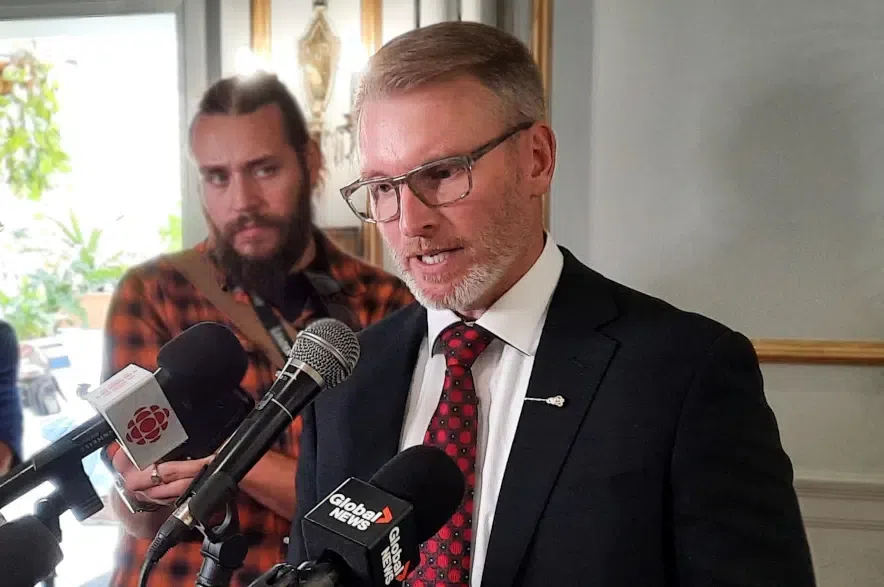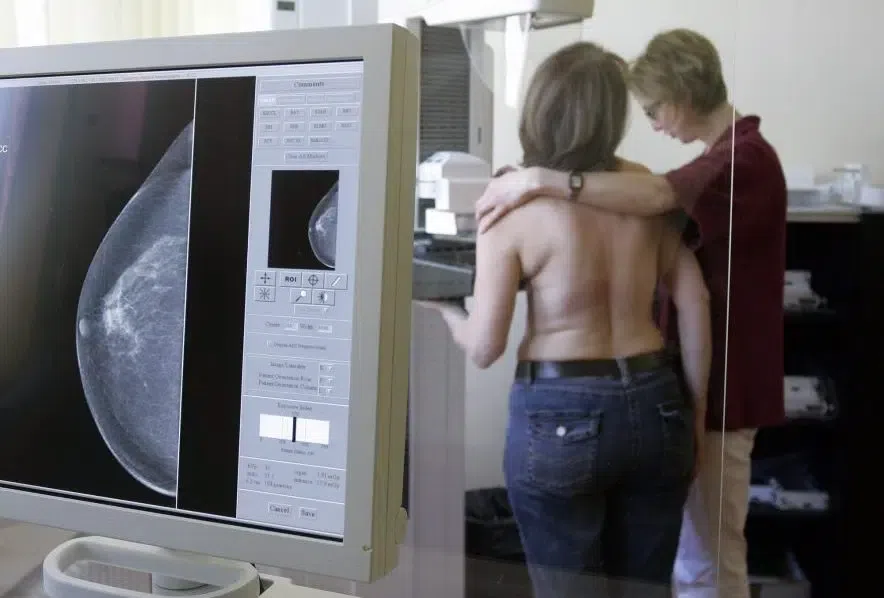As Saskatchewan struggles with long wait times for breast cancer diagnoses, the province is sending some patients to Alberta.
The initiative begins immediately, the Ministry of Health announced Wednesday. The government said the highest-risk patients have been identified and will get a diagnosis in Saskatchewan, while eligible patients on an urgent wait list will be able to get diagnostics performed at a private radiology centre in Calgary.
“A process to identify and proactively contact patients individually will begin immediately,” the ministry said in a statement. “This out-of-province care will be co-ordinated by the Regina Breast Assessment Centre.”
The out-of-province care is meant to be a temporary measure, the ministry noted, “until these services are stabilized in the province, particularly in Regina.”
The ministry will reimburse travel and accommodation costs up to $1,500, the government noted, and will cover the medical expenses associated with the diagnostic procedures.
“We are thankful for the hard work and dedication of Saskatchewan health-care teams who continue to provide these important services in the province,” Everett Hindley, Saskatchewan’s health minister, said in a statement.
“That being said, current essential diagnostic testing wait times are unacceptable for Saskatchewan residents and immediate action must be taken.”
The delays in breast cancer diagnoses have been under the spotlight recently, with one patient saying she’s had to wait months for a diagnosis while a lump continues to grow. Despite finding the lump in April, she said she likely won’t even get a biopsy referral before the end of this month.
The Saskatchewan Health Authority said the backlog started during the COVID-19 pandemic, when cancer screening was put on hold. That led to an increased demand by early 2022.
The health authority has already taken some steps to try and bring down waiting times, including extending hours and performing tests in Saskatoon for patients in Regina.
The authority is also working to increase testing capacity at regional hospitals in smaller centres like Moose Jaw, the ministry added, and is working to train and recruit more specialists.
Hindley said all options are on the table when it comes to cutting wait times.

Health Minister Everett Hindley says all options are on the table when it comes to reducing wait times. (Lisa Schick/980 CJME file photo)
“I had asked that all options be considered to reduce current waitlists and while work continues on bolstering Saskatchewan resources so we can provide this care at home, our partnership with a private provider in Alberta will offer immediate solutions to patients and staff,” Hindley said.
Jodi Krechowiecki, a breast cancer survivor and advocate, said women in Saskatchewan have been sounding the alarm on wait times.
“The government’s urgent action to ensure timely diagnosis for patients is welcome news to Saskatchewan women,” Krechowiecki said in a statement shared by the ministry.
“We will continue to push for improved patient access within Saskatchewan and I am relieved to see that the government is listening to women in this province.”
More information on the program can be found on the ministry’s website.
NDP says decision is “proof of Scott Moe’s failures”
NDP Leader Carla Beck said Saskatchewan sending patients to Alberta for what she called a “basic procedure” is evidence of failure by Premier Scott Moe’s government.
“This government should be doing everything it can to help women at risk of breast cancer, but I’m shocked it’s come to this,” Beck said in a statement.
“This is what 16 years of Sask. Party mismanagement gets you. I don’t think it’s ever been harder to get a mammogram in Saskatchewan before. It’s absurd. The longer Scott Moe is in power, the further women will have to travel for basic breast cancer screenings.”
According to the NDP, reports from the Saskatchewan Cancer Agency show the province performed 10,000 fewer mammograms in 2022 than in 2017, and some doctors are reporting waiting lists that stretch into next June.
The NDP pointed to Ontario, which has expanded breast cancer screenings and lowered the minimum age for self-referred screenings.











